Robbie McEwen excited to see Ewan take on Cavendish in 2016 sprints
Former Australian sprinter explains the importance of an aero sprinting technique
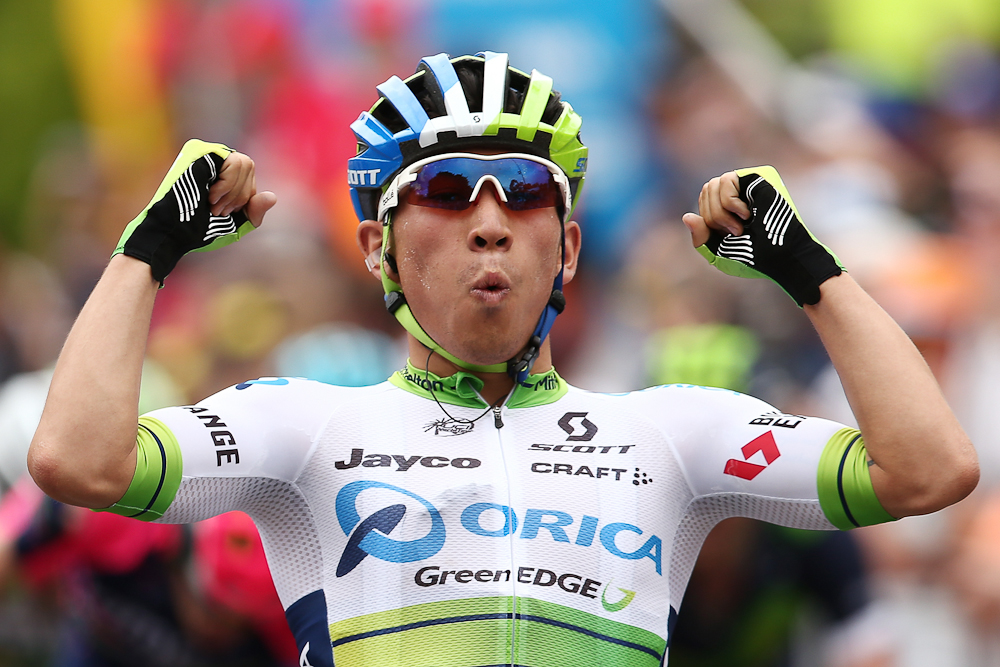
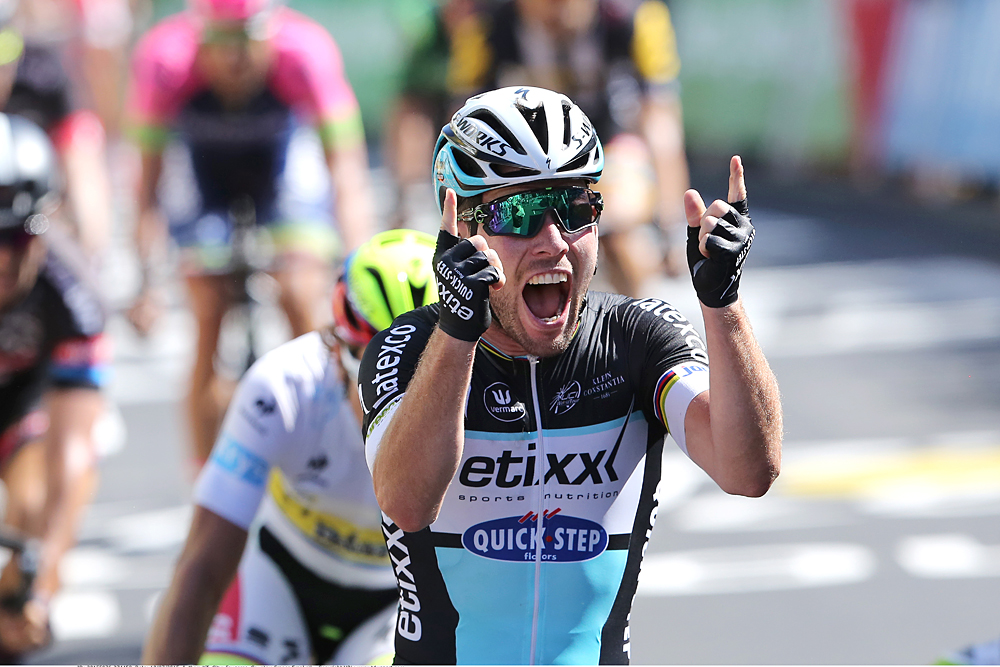

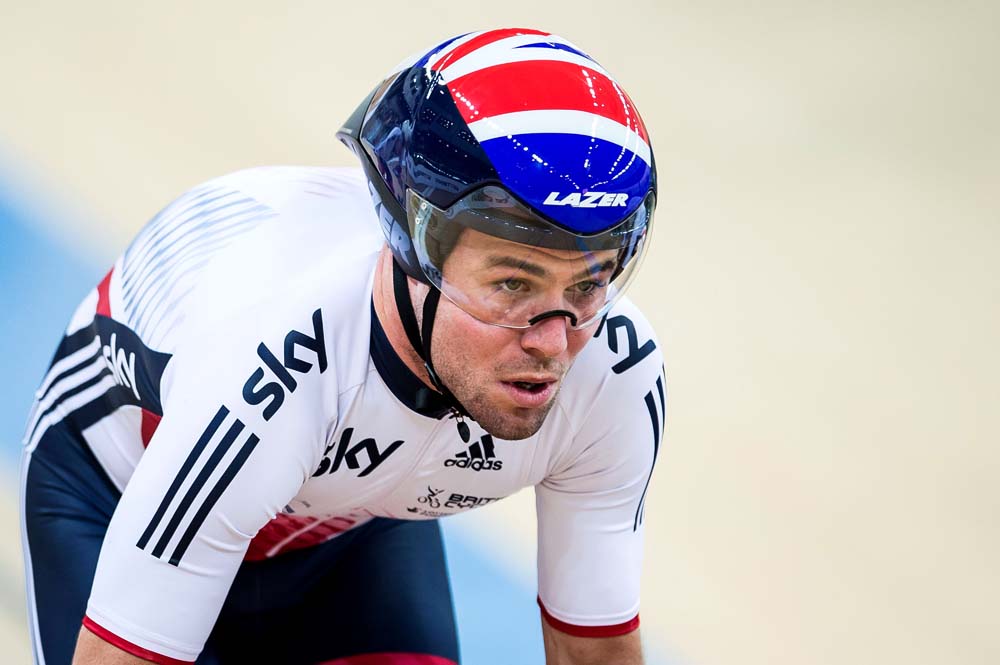
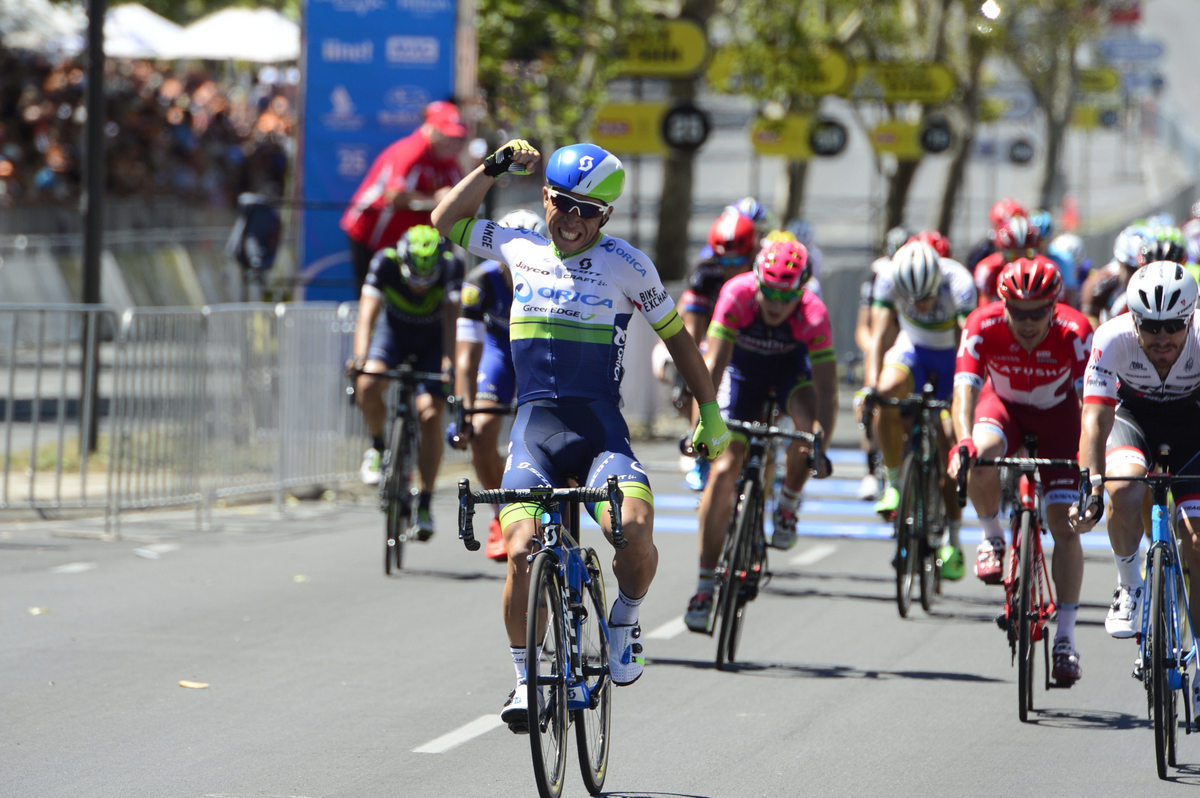
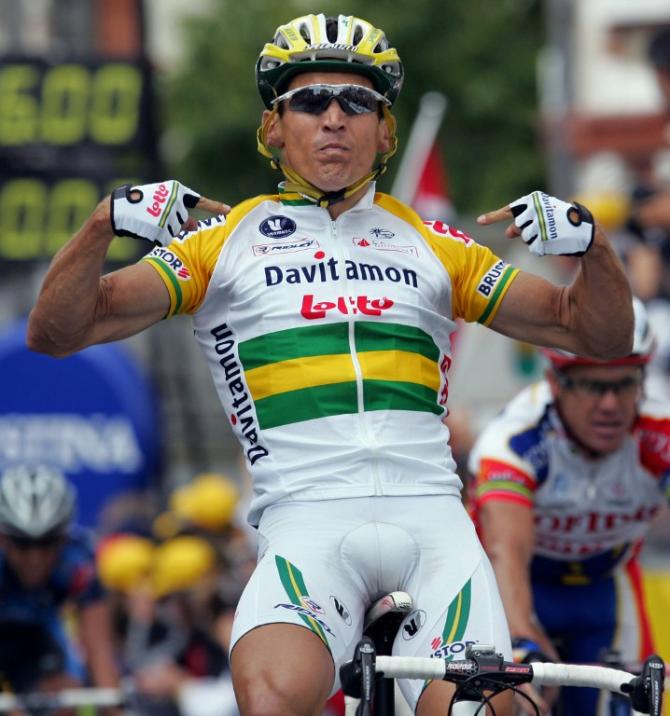
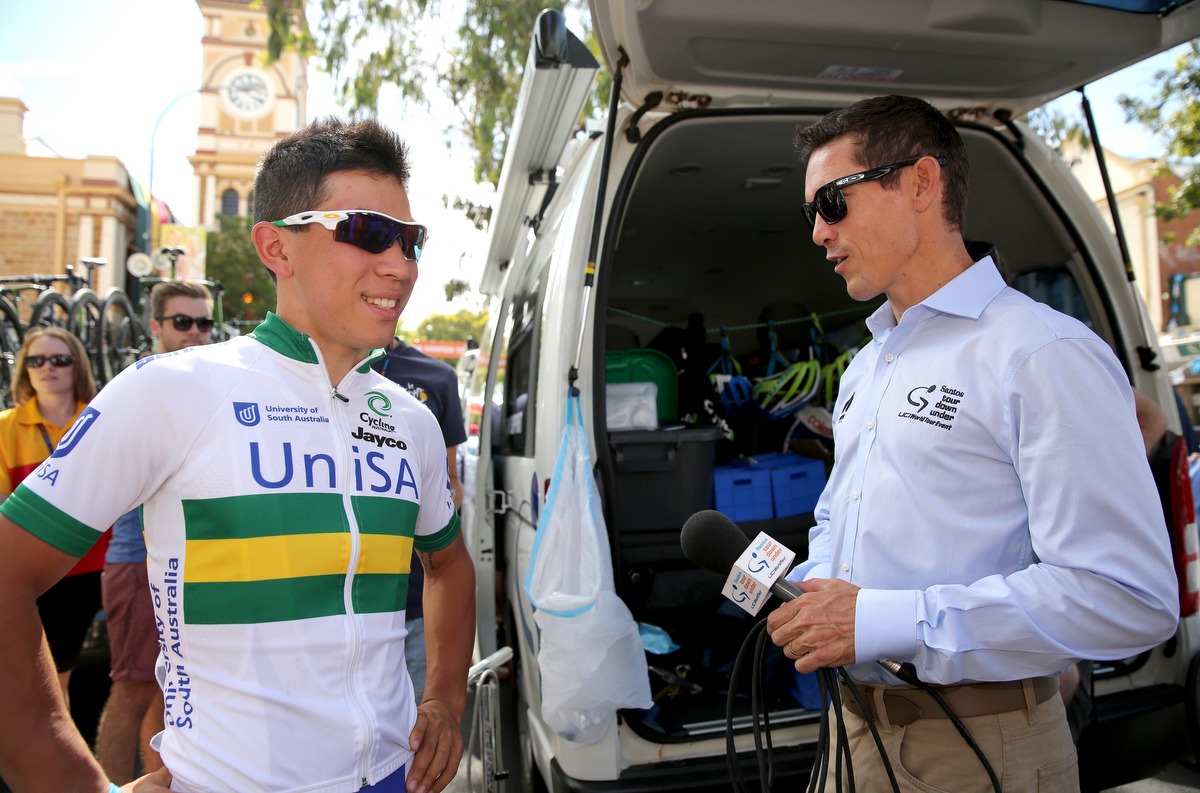
Robbie McEwen has suggested that Caleb Ewan has the ability beat Mark Cavendish in a sprint finish after the Orica-GreenEdge rider’s show of form and success at the Tour Down Under.
Tour Down Under: Ewan delivers in Lyndoch for first WorldTour leader's jersey
Ewan stage win confirms Tour Down Under dominance for Orica-GreenEdge
Cavendish upbeat before Dimension Data debut at Cadel Evans Road Race
Wiggins, Kittel, Cancellara and Cavendish confirmed for Dubai Tour
Orica-GreenEdge confirms Ewan for Jayco Herald Sun Tour
Ewan's summer of success continues in Moe
Caleb Ewan hoping for a shot at a sprint victory at Tirreno-Adriatico
The 21-year-old Ewan won the opening criterium and two stages at the Tour Down Under, confirming he is one of the most promising sprinters in the WorldTour peloton. The two riders have similar builds, similar power outputs and both sprint tucked low over the handlebars to maximise their speed. Cavendish has followed in the footstep of McEwen and even bettered the Australian’s results, while Ewan appears to be the next great ‘pocket rocket’ sprinter.
McEwen won 75 races during his long career between 1996 and 2012, including 12 stages at both the Tour de France and the Giro d’Italia. He now works for Australian television, using his own experience to analyse the current generation of sprinters who will clash in the 2016 races.
“That’s a tough one. Caleb is in really good form but Cav’s got so much experience and a little bit more rider toughness. But if Caleb and Cav were sprinting against each other now, I’d go for Caleb. I’m talking about lining them up against and sprinting to the line, without lead outs and racing first,” McEwen told Cyclingnews.
Ewan and Cavendish will both ride Sunday’s Cadel Evans Great Ocean Road Race but the rolling course could mean a sprint finish is unlikely. Like many observers, McEwen is looking forward to when Cavendish and Ewan shoulder to shoulder in a sprint, probably some time in the spring in Europe.
“I haven’t seen Cav sprint for a bit, it was probably at the 2015 Tour de France when he won a stage. He hasn’t really done anything impressive since then. I’d have to watch Cav race this year to see how he's moving to understand if he’s still at his best. It’ll also be interesting to see how Caleb goes racing against the other big sprinters. And I don’t mean a one to one fight with Cav, Greipel or Kittel, but when all of them are together. It’ll be fascinating to see but when it gets more difficult for him to win.”
Can Ewan be better than McEwen?
Get The Leadout Newsletter
The latest race content, interviews, features, reviews and expert buying guides, direct to your inbox!
McEwen has huge admiration for Ewan even if the Orica-GreenEdge rider seems on course to steal his crown as best-ever Australian road sprinter. They even exchanged banter during the daily Orica-GreenEdge backstage pass video updates. McEwen was never afraid to speak his mind during his career and is straight to point even now.
“I was asked if Caleb can be as good as I was at the Tour Down Under and my reply was simple: He can be but only time will tell,” McEwen told Cyclingnews.
“We don’t know how much more he can develop, how much margin there is there. When you come through as a sprinter, your top speed doesn’t change much at all, you can access it more consistently and do it more at the end of longer and harder races. It’s going to be fascinating to follow his career and see how he develops.”
Aero position versus power and speed
It is always difficult to compare riders from different generations but there are distinct similarities between McEwen, Cavendish and Ewan. They have different temperaments, different teams and face different rivals but share the same sprinting technique, with Ewan clearly using the same low aerodynamic sprinting position that made Cavendish so dominate in the Tour de France sprints between 2008 and 2013.
“One is that we’re the only three riders to come on the scene in the last 20 years and win 10 or more races in our neo-pro season,” McEwen pointed out quickly. “The power to weight ratio is of course our big thing. None of us put out massive power numbers in terms of total watts but we’re right up there at watts per kilo. And that’s what it's all about.
“One of the biggest comparisons between Caleb and Cav are their positions on the bike. They’re almost identical. They both get a really low, with their head over the bars, in a forward position. That’s only really much achievable by those two guys because of their build: they’ve short stocky legs, pretty short arm and a normal torso. It’s not possible for anyone taller to contort themselves into that position and generate their maximum power. For Cav and Caleb, that’s their natural position.”
McEwen quickly does the math to explain the benefits of a low aero sprinting position.
“It means that if Kittel is putting out 1,800 watts, Caleb probably only needs to put out 1,400 watts to be competitive in a sprint,” he points out.
“On a straight, flat sprint I think the big guys still have a slight advantage and can wind up the power up and combine it with the momentum but on finishes when the road rises up to the line, the advantage switches to the little guys. That’s where I always did my best work and results. But even on the flat sprints the low position gives the little guys an aerodynamic advantage because the riders behind him struggle to get much of a slipstream. I can remember being in that position sprinting against Cav in the final part of my career. I can usually get a ride behind anyone but you get more wind when you’re behind Cav. Caleb is even smaller and so I imagine it's even worse when you sit behind him.”
Cavendish has proven his sprinting ability by winning 26 stages at the Tour de France, Milan-San Remo in 2009 and the world road race title in 2011. He is a fighter and has incredible skill to read a sprint and take on the power sprinters like Greipel, Kristoff and Kittel.
McEwen is slightly concerned that Ewan may lack some aggression when the big sprints turn nasty at 70km/h.
“Because he’s so small, he’s in great danger of getting a knee in the head from a guy like Greipel or Kittel. I was like that with Cipollini, I couldn’t go shoulder to shoulder with them because I was in danger of riding into their legs and going down. I suppose we’ll find out soon enough.”

Stephen is one of the most experienced member of the Cyclingnews team, having reported on professional cycling since 1994. He has been Head of News at Cyclingnews since 2022, before which he held the position of European editor since 2012 and previously worked for Reuters, Shift Active Media, and CyclingWeekly, among other publications.